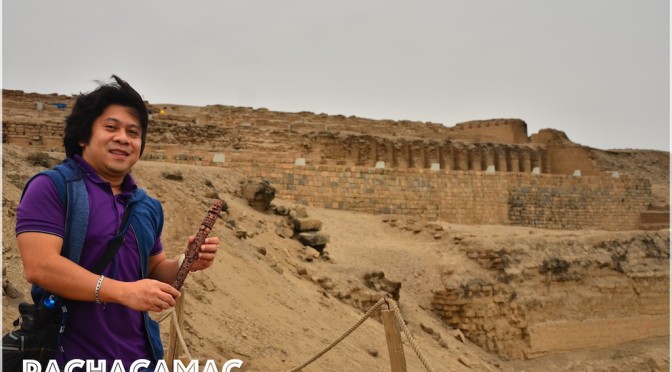After a stop at Barranco, we drove straight 30 kilometers south of Lima, to the Archaeological Sanctuary of Pachacamac. Pacha Kamaq means the Earth creator.
Pachacamac was built in adobe with a view of the sea and the Lurin Valley. It was home to many civilizations in ancient Peru. Several cultures were developed and being adapted. Upon arrival of the Incas, the complex was transformed from being an administrative center to a religious center yet preserving the existing construction.
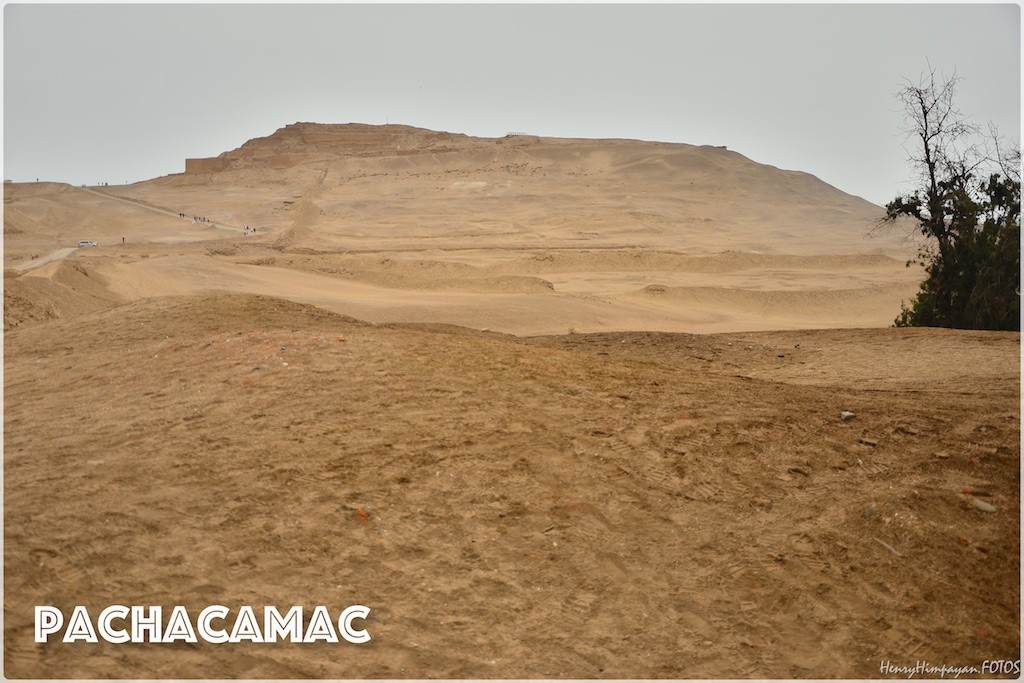
I first thought that I will see a clear complex on the place made of adobe and rocks, but it was not. What I’ve seen when we arrived was a deserted area, a mountain of sand.
We had a quick restroom stop while our guide bought our tickets. Near the restroom were some display of souvenirs, a canteen and some descriptions and pictures on the walls. It’s worth reading.
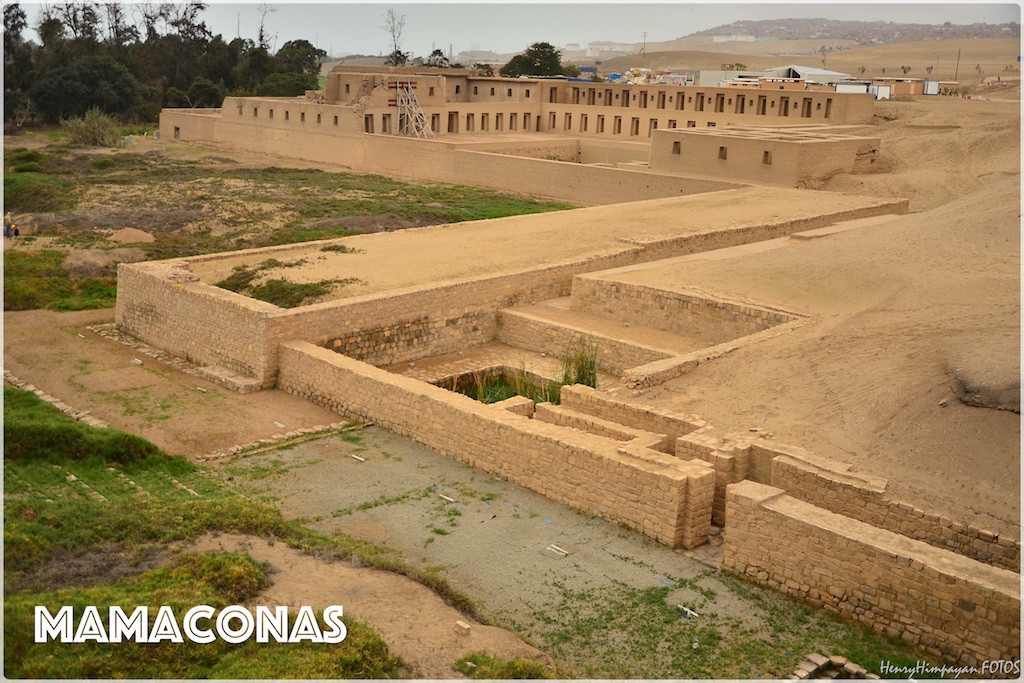
We started our tour at the Mamaconas. As per our guide, it was built by the Incas at around 15th century. The structure was built for women dedicated to the cult of the sun god. It was also a complex for the production of fine goods for the temples. It was made up of three sections: the large structures with staircase, the precincts between them and the large open patio. The building resembles an Incan structure through its trapezoidal niches.
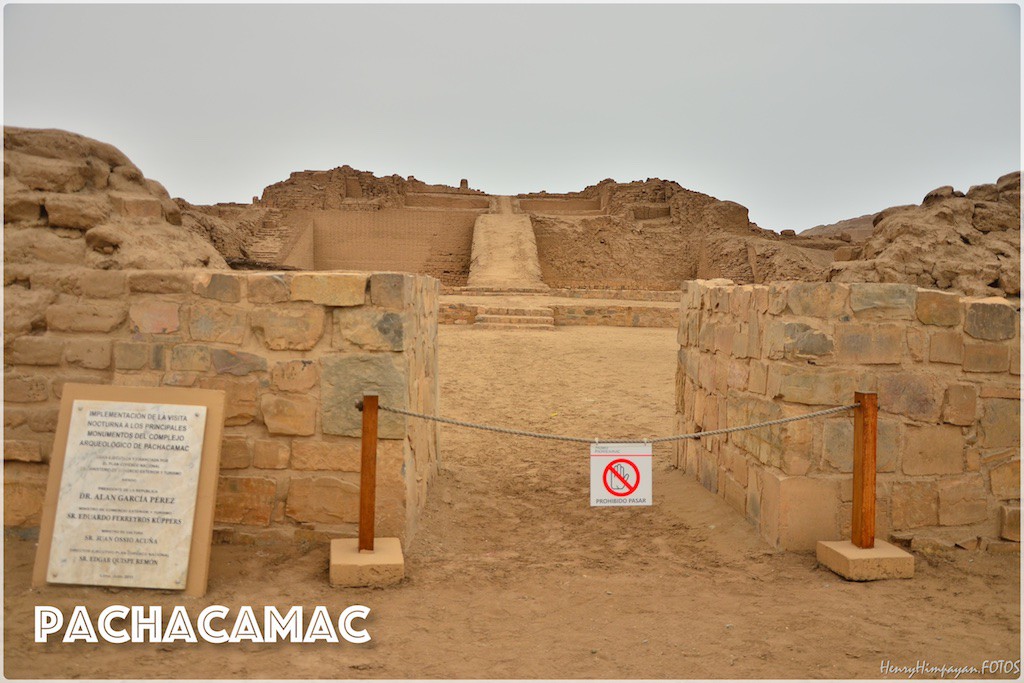
Then we went to the Piramide Con Rampa located at the left side of the complex. As per my guide, it was built before the Incan period. It served as an administrative center or maybe as their palaces. On-going restoration was being done in the area.
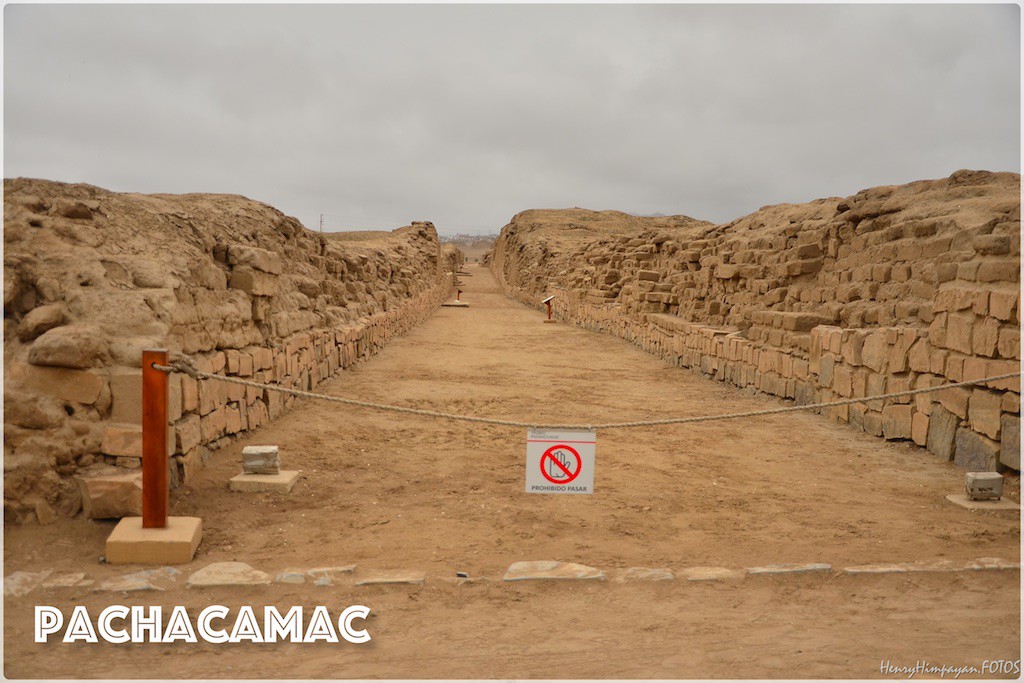
At the left of the pyramid was the Calle Norte – Sur, resembles the Inca trail. The trail was made of tall walls of adobe and stones. We got the chance of taking photos at the North and South roads.
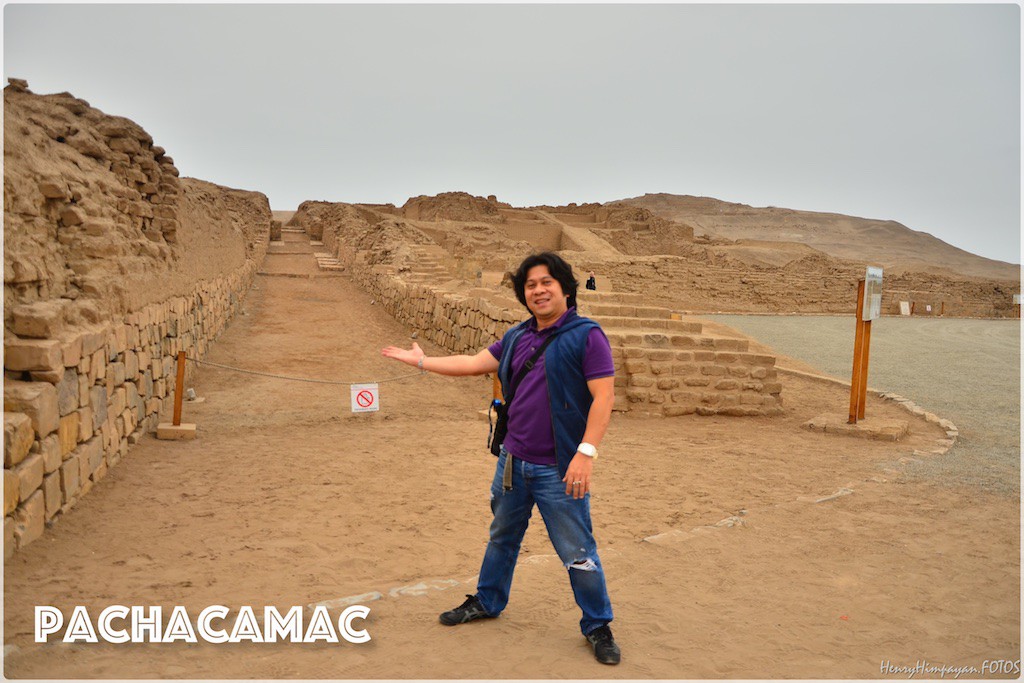
Pachacamac was such a huge complex. We drove our way towards the roads on the side passing the cemetery. They’ve identified the area as burial grounds due to the artifacts that were recovered during the restoration. Some were taken to the museum and others were kept at a safer place.
There were walls being restored, some of it were being recreated to showcase the structures’ beauty before it was being destroyed. Some of it includes walls painted in red and yellow.
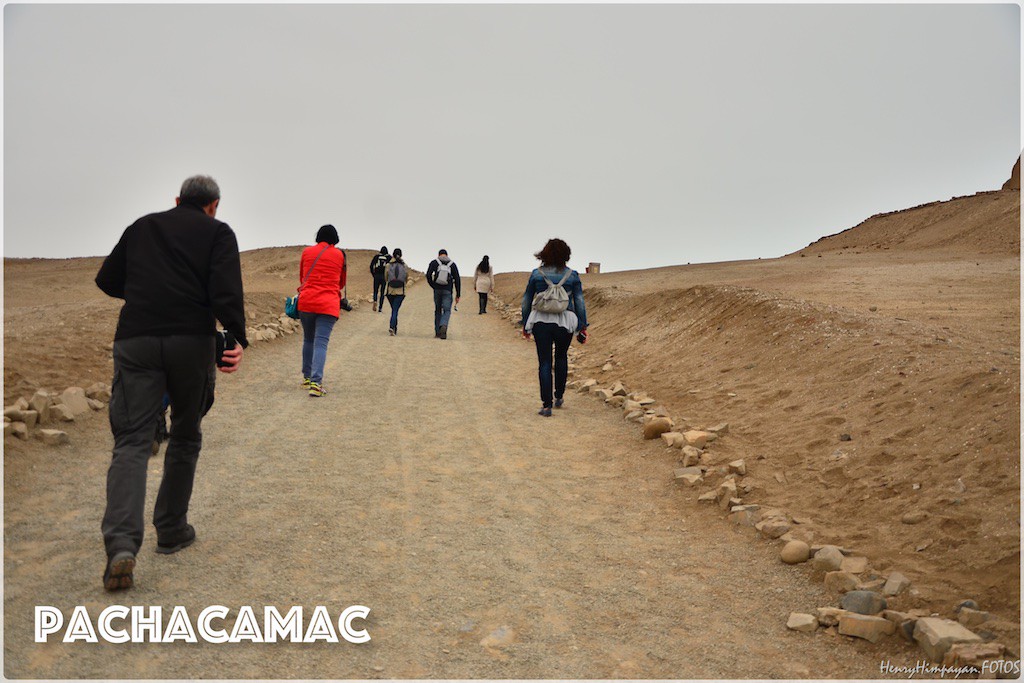
We made a final stop at the access road going up the Temple of the Sun. They worshiped the sun god and they have identified the tallest structure to be the Temple of the Sun. We had to walk up there to have a closer view of the temple. It was a short walk up the hill where you can see the main entrance of the temple at the right.
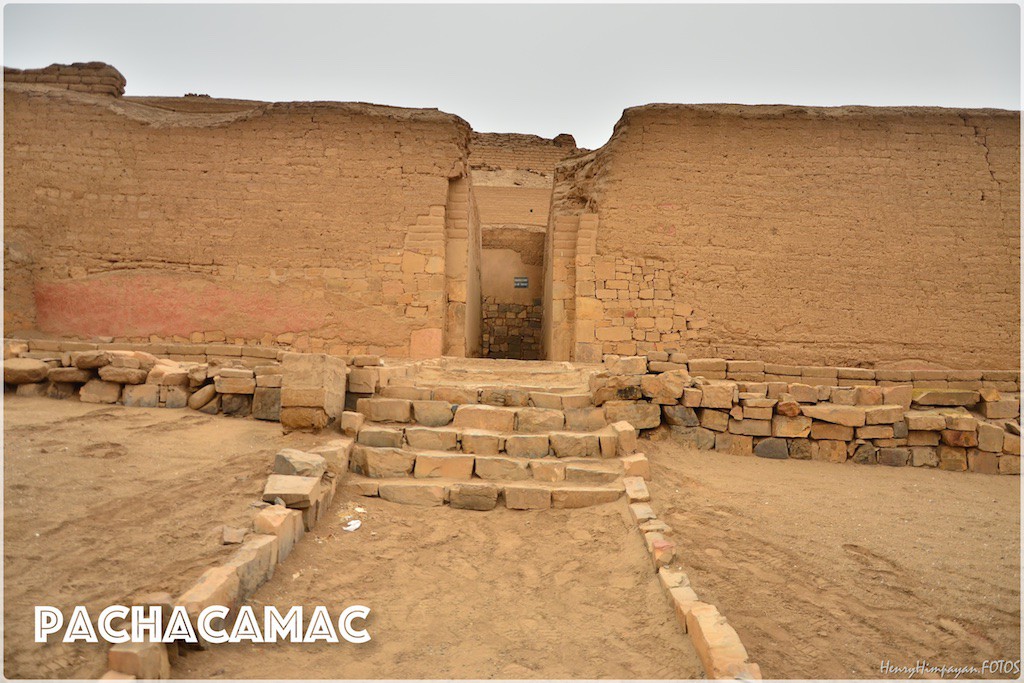
It’s not possible to go inside the temple of the sun. We took the northern side of the temple to go to the other side. All walls were made of adobe bricks and stones. When we arrived at the west side, we saw some remains of the structure with trapezoidal niches which were attributable to the Incas. Several trapezoidal niches were still evident until now.
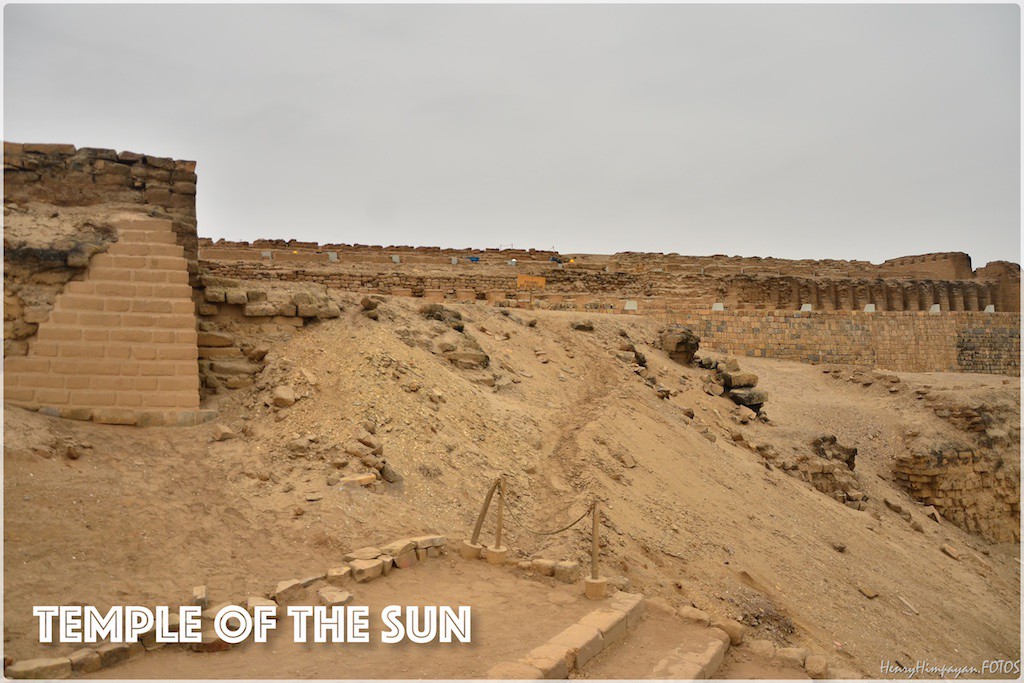
As we walked around the temple, there were portions being destroyed throughout the years maybe because of soil erosion. Yet some portions of the structures were still intact. You can clearly see how there structures were being built during their time.
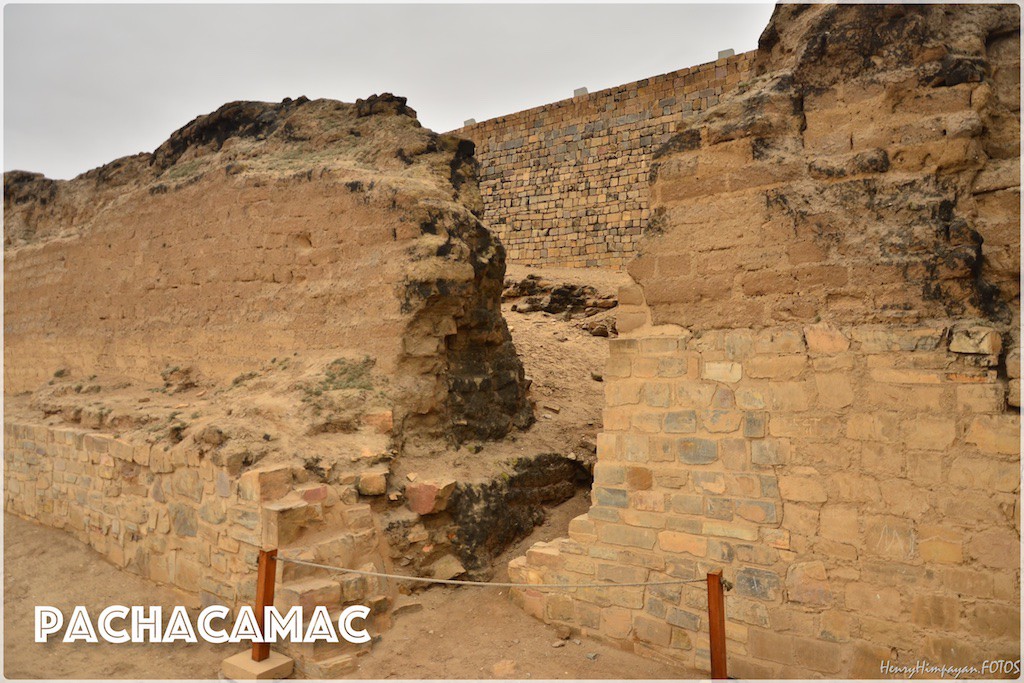
In my opinion, to restore this huge place will take more years to do it. But it will all be worth it.
Been here: August 11, 2015
Latest posts by Henru (see all)
- 42KM @ 42 – Cebu City Marathon 2023, The CCLEX Experience - January 8, 2023
- BATAAN… Mt. Natib - June 12, 2017
- BENGUET… MT. PULAG (AMBANGEG TRAIL) - March 17, 2017

